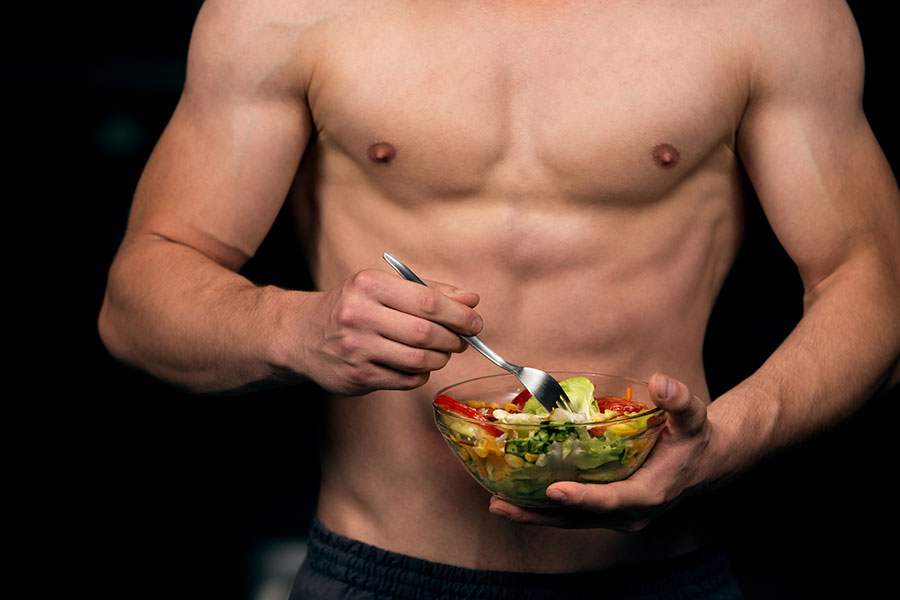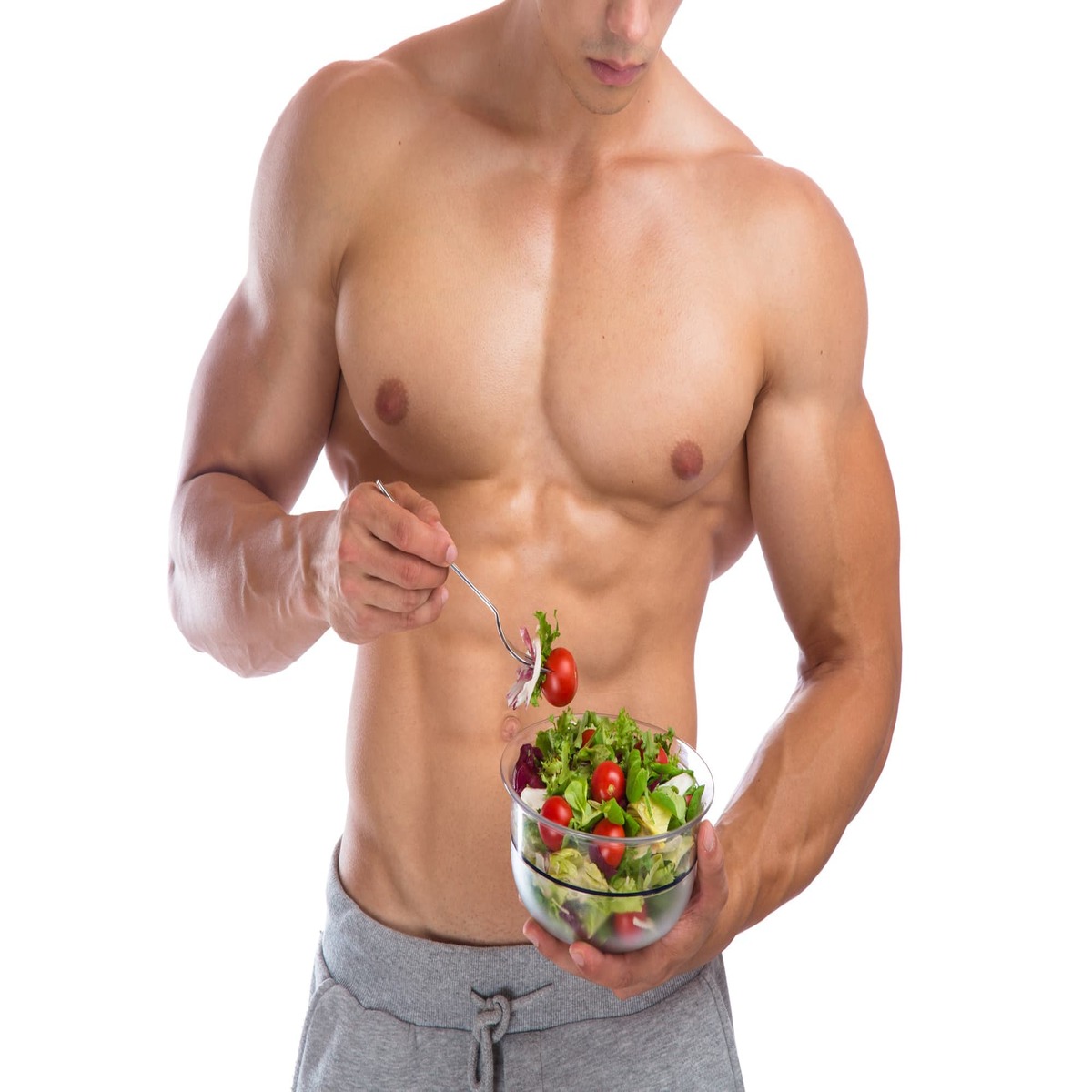The most important part of a combat athlete’s daily regimen is certainly nutrition. Why? Because combat athletes must make weight while competing at the top levels; nutrition is the single most important aspect in a successful weight loss (weight cut).
However, any sports nutritionist will tell you that a combat athlete needs to include nutrition in their daily regimen all year long.
How To Get A Body Like A UFC Fighter
Nutrition For Fighters Between Training Camps
This phase of a fighter’s training season is most likely the most neglected and crucial. Combat athletes far too frequently use this time to eat the things they’ve been avoiding for weeks or months.
Fighting athletes spend more time trying to lose weight before competition rather than concentrating on performance because of this frequent weight cycling practice. Worst-case scenarios include the possibility of eating problems and an elevated risk of injury.
While occasional indulgences are acceptable, an unrestricted diet can quickly and significantly increase weight.
Between training camps is the best time to let your body recuperate and get back into an energy balance. You need to replenish the calories lost during your daily activities.
This consists of eating a well-balanced combination of protein, carbs, and good fats. Eating a healthy diet makes it simple to promote healing and keep the energy level balanced.
Find Out The Health Benefits of Martial Arts

3 Steps To Muscle Recovery And Energy Balance
Eat Carbohydrates Before Training
Before exercising, consume a mixture of simple and complex carbohydrates to provide your muscles with the fuel they require to work for extended periods of time at high intensities.
It is advised that athletes who are involved in rigorous training—multiple sessions per day—consume 5-8g of carbs per kilogram of body weight each day. Oatmeal, strawberries, whole-grain bagels with jam , and granola bars are a few examples.
Eat A Rich Source Of Protein and Carbohydrates After Training For Recovery
Ideally, 20-30g of protein should be consumed. Examples include a protein shake + piece of fruit, beef jerky + tangerines, Greek yogurt. Overall eating protein and/or amino acids prior to, during, and/or following exercise can enhance recovery, immune function, and growth and maintenance of lean body mass.
Drink An Adequate Amount Of Liquids
The general recommendation is to restore 150% of the fluids lost after exercise, or 16 to 24 ounces for each pound lost. Weighing yourself before and after exercise and observing the color of your urine are the best ways to do this.
The ideal color for your pee is a light lemonade. To assist replenish fluids lost during exercise, electrolyte powder and sugar solutions/drinks can be helpful.
Strength Training Routine For MMA Fighters

Cook Meals According To Your Training
Rice, beans, or sweet potatoes should make up half of your dish. The best nutrition for intense activity sessions is carbohydrates, which also help muscles recover.
This is particularly crucial if you have several training sessions in one day. To encourage the consumption of critical vitamins, minerals, and antioxidants to reduce inflammation, make a good portion of your weekly meal plates fruits and vegetables. To get the best muscle recovery, add 20–30g of protein to each serving.
To encourage the intake of vitamins, minerals, and antioxidants, cover half of the plate with fruit and non-starchy vegetables. Increasing fiber consumption will also encourage satiety and aid in weight maintenance.
Make whole grains or healthy fats the fourth of your plate (avocado, olive oil, peanut butter, hummus). To encourage muscle repair and heighten satiety, make one-fourth of your plate lean protein.
10 Reasons Why We All Love Martial Arts
Nutrition Prep For Fight Camp
Combat sports, as was previously established, are extremely energy-intensive. However, the body won’t function at its best without adequate nutrition.
A healthy ratio of carbs, proteins, and fats is still required even during fight camp, the 6–8 week time where someone trains for an impending event.
However, since carbohydrates and fats will have a limited ability to start weight reduction, timing of nutrients will be crucial.
Meal Prep Breakdown For Fight Camp
- In order to replenish muscle glycogen, encourage recovery, lessen muscular soreness, and have energy storage for training sessions later in the day, consume carbs during the first couple of hours after training.
- A 1:1, 2:1, or 3:1 ratio of carbohydrates to protein should be your goal, depending on the length and intensity of your workout (using 30g of protein as the reference point).
- The single most crucial macronutrient for weight loss, recovery, strength maintenance, and preventing a large loss of lean tissue is protein. Combat athletes should strive to consume 2.2 grams of protein per kilogram of body weight each day.
- To protect muscle tissue and aid in recovery, 20–40 g of protein should ideally be ingested as soon as possible after exercise and again every three–four hours.
- Consume at a minimum of 30-60g of carbohydrates 1 hour before exercise to increase energy availability toward the end of an exhaustive workout and prevent early fatigue.
Proving That Martial Arts Work
What to Eat for Combat Sport & MMA Nutrition | Phil Daru
Eating For Fight Day
The nutrition plan on a fight day will be quite similar to that of a demanding training day. What is necessary to reach optimal performance after a challenging training session? Carbohydrates!
For your muscles’ glycogen stores to be fully topped off and ready for use, you must place a strong focus on carbs.
Breakdown: Nutritious Meals For Fight Day
- Create a balanced plate for your first meal within an hour of waking up by including a lot of protein, complex carbohydrates like fruits and grains, and even a little fat. The three macronutrients—protein, carbs, and fats—are necessary to replenish and maintain muscle tissue, fully saturate glycogen stores, and help you feel full for longer.
- Eat a mixed meal with no more than 10g of fat, 60-90g of carbohydrates, and 20-30g of protein three to four hours before your event. At this moment, having as little fat as possible is preferred because fat will induce a delay in the muscles’ ability to absorb carbs. To optimize carbohydrate absorption is the ideal outcome.
- It is advised to eat 1g/kg of carbohydrates one hour before engaging in a high-intensity activity. It will be preferable to consume simple carbs in the form of liquids, powders, or simple starches like cereal because they digest and absorb extremely rapidly. A 60g snack should be adequate in the ideal world.
Conclusion
Overall, the energy needs of combat athletes will differ significantly based on their height, weight, and training regimen.
While weight is a factor in combat sports, drastically reducing calorie intake or skipping meals to lose weight is not recommended.
Extreme diets and weight-loss techniques have a negative impact on performance potential and can have serious health effects.
Combat athletes must consume food often to guarantee they are obtaining enough nutrients to maintain health, support training, and prevent injury because a big portion of energy deficiencies will come from exercise.
Premier Protein Shake 30g Protein 1g Sugar 24 Vitamins Minerals Nutrients to Support Immune Health, Chocolate, 11.5 Fl Oz (Pack of 12)

Packaged in a 11.5 Fl Oz bottle, each Premier Protein Shake contains 30 grams of protein, complete with all the essential amino acids, 1g of sugar, 3-5g carbs (depending on flavor), 160 calories, 24 vitamins & minerals, and is also low in fat.
We use a blend of milk protein and casein in our shakes to help fuel muscles quickly and for several hours to help support your goals. Enjoy a shake as a healthy snack, a breakfast on-the-go, an afternoon snack, or as pre- or post-workout fuel. They are delicious as is but are also highly customizable.
Try blending with your favorite fruits and vegetables for a delicious smoothie or adding to cereal or oatmeal. Available in 9 delicious flavors: Cinnamon Roll, Chocolate, Vanilla, Cafe Latte, Caramel, Cookies & Cream, Strawberries & Cream, Bananas & Cream, and Peaches & Cream.
About this item
- Chocolately goodness: Smooth and creamy, rich chocolate flavored shake; Winner of American Masters of Taste Gold Medal for SUPERIOR TASTING ready-to-drink protein beverages
- 30g of protein to help curb your hunger, as a mid-day snack or for post workout recovery; includes all essential amino acids
- 24 Vitamins and Minerals: Support a healthy immune system as part of a healthy diet and lifestyle (Antioxidants Vitamins C and E plus Zinc), 50 percent daily value of calcium and 30 percent daily value of Vitamin D to help maintain healthy bones
- Guilt free indulgence: 1g Sugar, 5g Carbs, 160 Calories and Low Fat; Gluten Free, Keto and Bariatric Friendly, Kosher
- Try all eleven (11) delicious smooth and creamy flavors: Chocolate, Vanilla, Caramel, Cookies & Cream, Cafe Latte, Strawberries & Cream, Peaches & Cream, Bananas & Cream, Cinnamon Roll, Chocolate Peanut Butter and Cake Batter Delight
- Contains: Milk and Soy
BUY NOW
Sponsor: The Lifestyle Dietician
